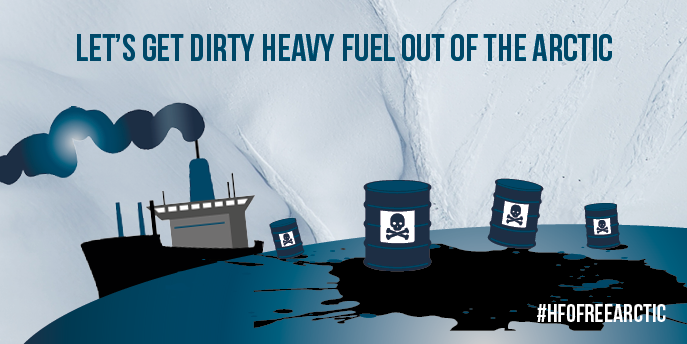During the Russian Federation’s two-year Chairmanship of the Arctic Council, the Clean Arctic Alliance is calling on Russia to focus on sustainable use of the Arctic, with a special emphasis on new mitigation measures for Arctic shipping which will minimise emissions, reduce the risk of oil spills, and address noise pollution. With these themes Russia can provide global leadership for a region of the world that is already experiencing extreme summer temperatures, record low summer sea ice extent and the opening of Arctic sea routes earlier in the year. In August 2020, the latest research showed that Arctic sea ice is melting faster than climate models have so far predicted, and scientists are now predicting summers with no Arctic sea ice by 2035.
Russia’s priorities during its leadership of the Arctic Council between 2021 and 2023 will be critical to the future health of the Arctic Ocean. The time to act is now, and the Clean Arctic Alliance urges Russia to:
Protect the ARCTIC ENVIRONMENT by:
- promoting the development of a zero-emission vision for Arctic shipping and supporting the development of a road-map, moving from fossil fuels to cleaner alternative fuels and the necessary on-shore infrastructure, to achieve the vision.
- encouraging Arctic nations to approve and adopt a strong International Maritime Organization (IMO) Arctic heavy fuel oil (HFO) ban for ships operating in Arctic waters by 1 January 2024, which eliminates the use of HFO and prevents the carriage of HFO as bunker fuel.
Promote CLIMATE AND GREEN ENERGY SOLUTIONS by:
- determining whether Arctic nations are fulfilling their commitments to reduce black carbon emissions by 25 – 33% by 2025 (based on 2013 levels), identify what proportion of these reductions are due to action by the Arctic shipping sector, and agreeing further action for greater reductions in ships’ black carbon emissions,
- supporting short-term measures to reduce GHG emissions from Arctic shipping, and in particular measures to reduce ship speed.
Support PEOPLE IN THE ARCTIC by:
- helping Indigenous communities protect their livelihoods and resources through a strong ban on the use and carriage (for fuel) of HFO by ships operating in Arctic waters. Such a ban will protect subsistence resources which are essential for the food security and cultural identity of Arctic Indigenous peoples,
- promoting efforts to ensure that transition funds will be available to directly support Arctic Indigenous communities moving to cleaner alternative fuels and making greater use of renewable energy (e.g. solar and wind power, battery storage technology) when a ban on the use and carriage of HFO by ships in Arctic waters is implemented.
Develop a STRONGER ARCTIC COUNCIL by:
- recognising and agreeing on actions to address the lack of trained emergency responders as well as search, rescue and response equipment capacity in the event of an Arctic oil spill,
- supporting and strengthening cooperation among Arctic nations to collaboratively respond to shipping accidents as well as oil and chemical spills.
About the Clean Arctic Alliance
The following not-for-profit organisations form the Clean Arctic Alliance:
90 North Unit, The Altai Project, Alaska Wilderness League, Bellona, Clean Air Task Force, Green Transition Denmark, Ecology and Development Foundation ECODES, Environmental Investigation Agency, European Climate Foundation, Friends of the Earth US, Greenpeace, Iceland Nature Conservation Association, International Climate Cryosphere Initiative, Nature And Biodiversity Conservation Union, Ocean Conservancy, Pacific Environment, Seas At Risk, Surfrider Foundation Europe, Stand.Earth, Transport & Environment and WWF


